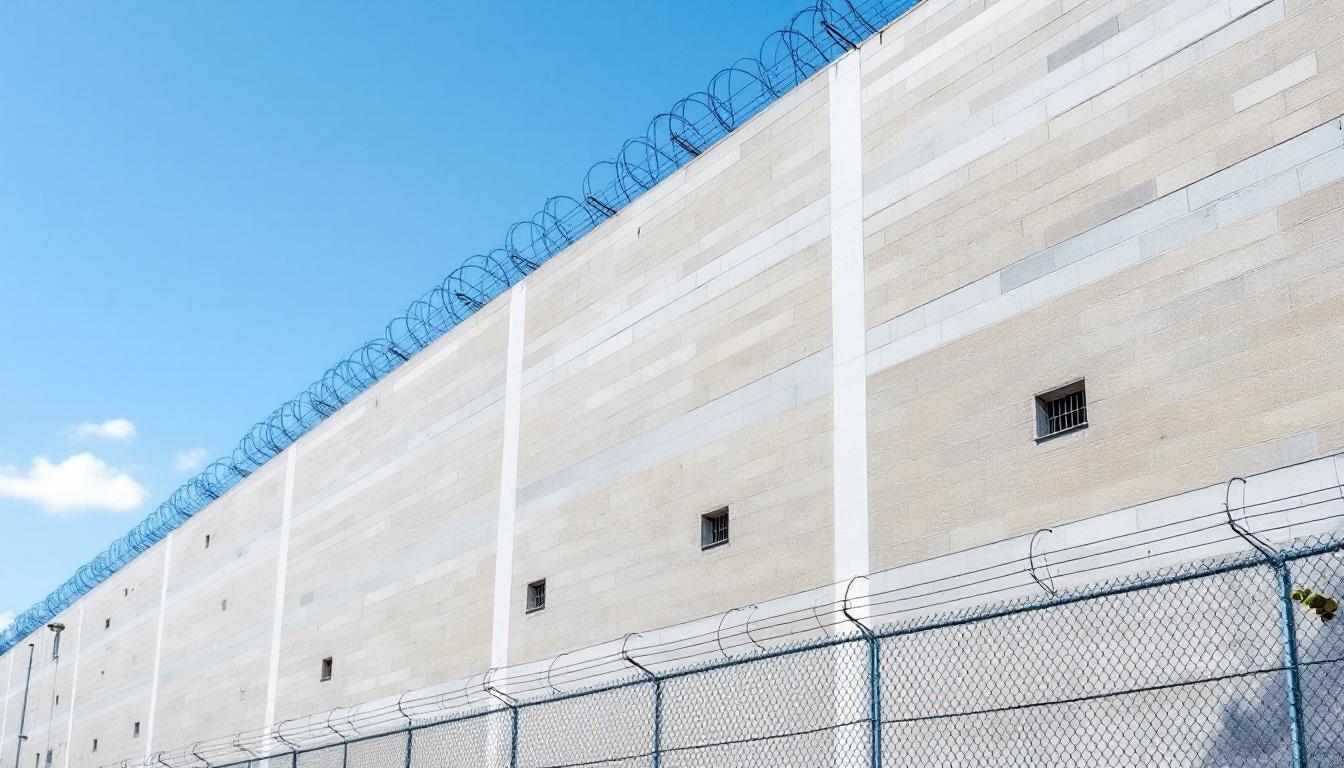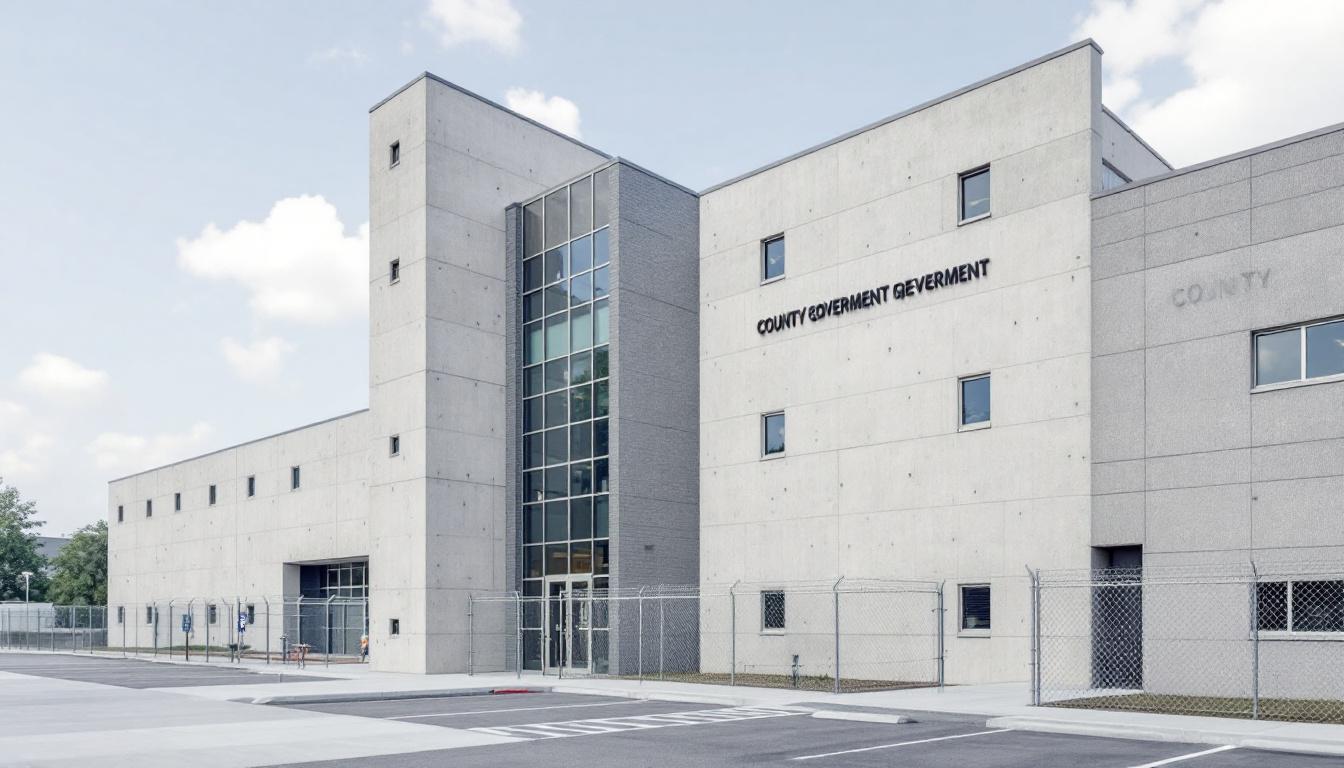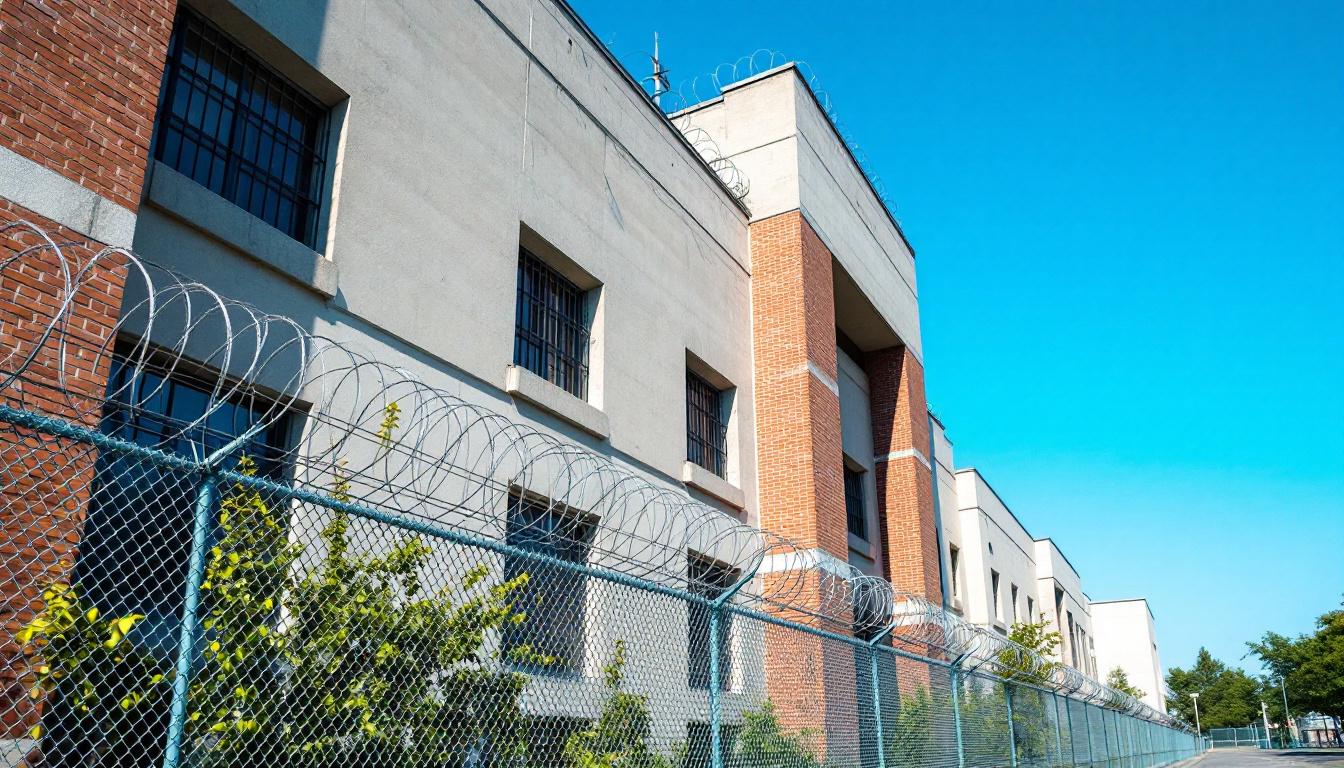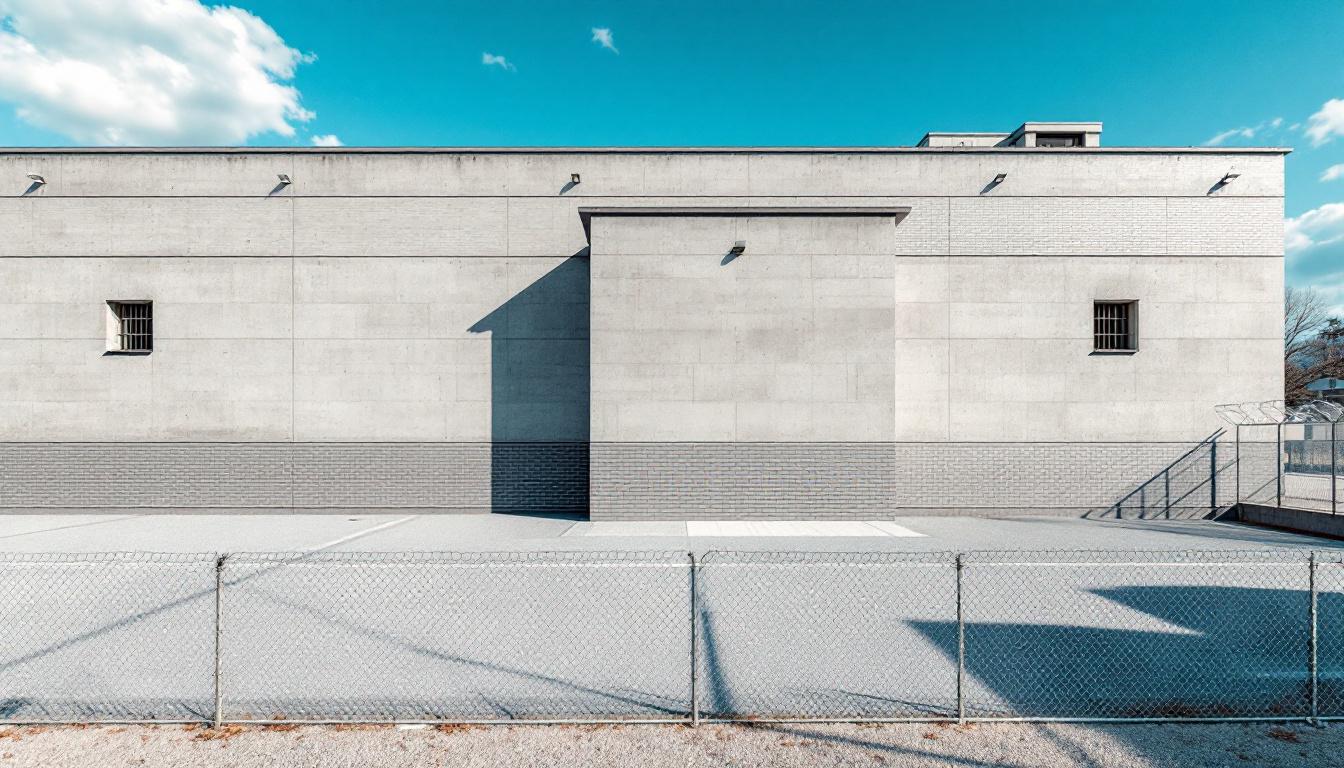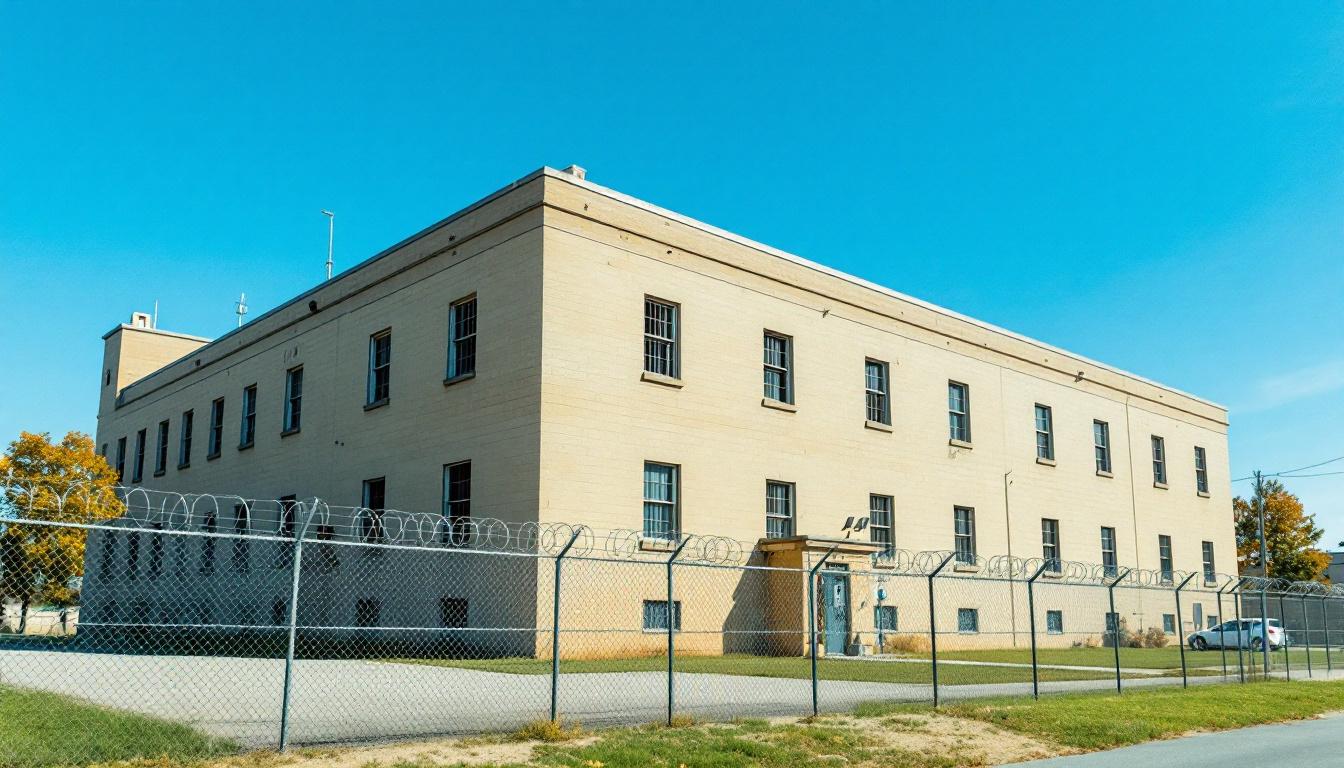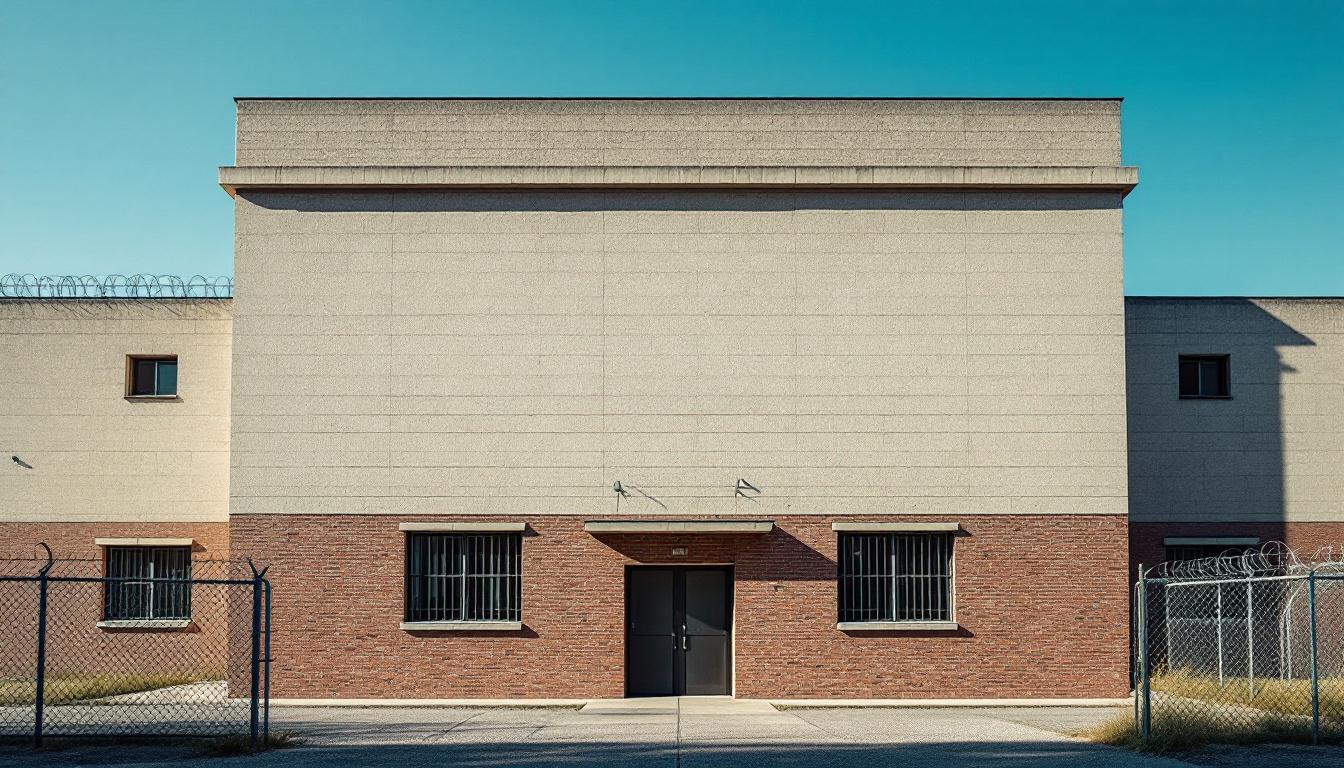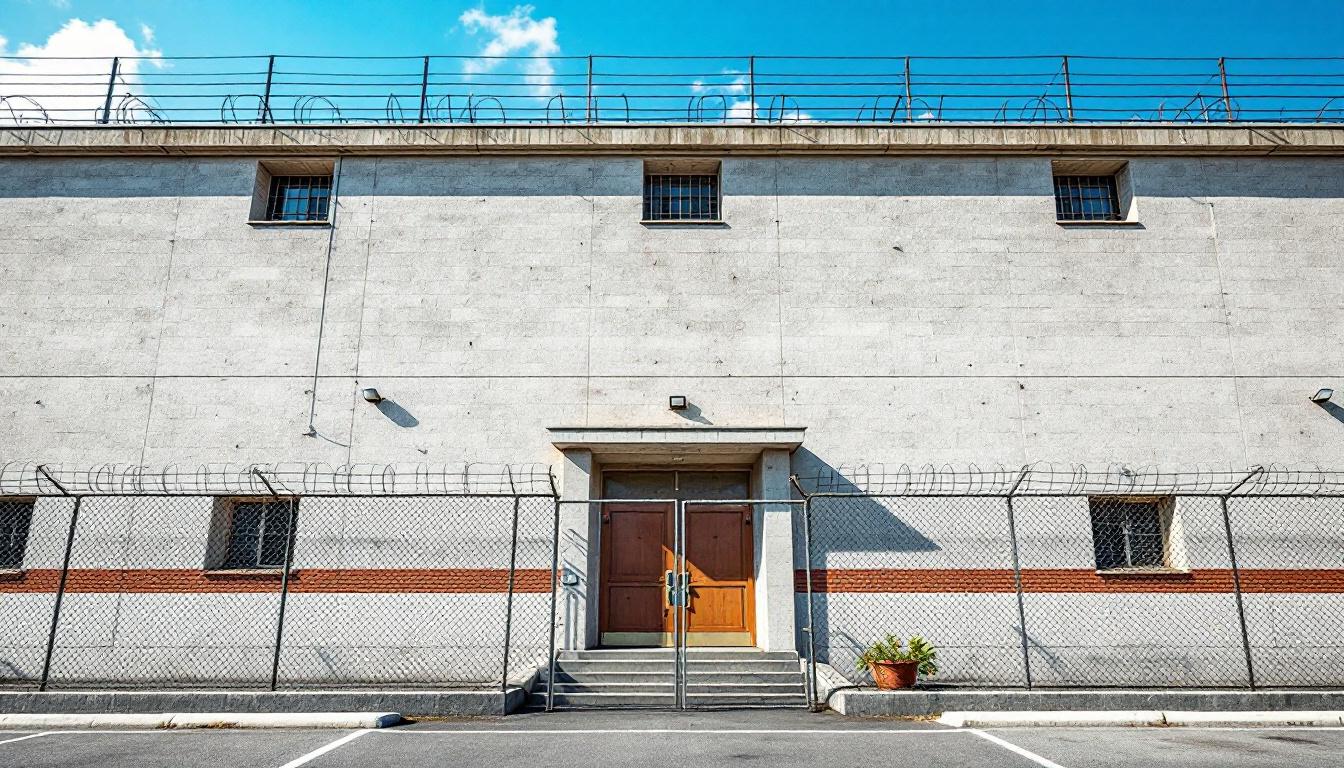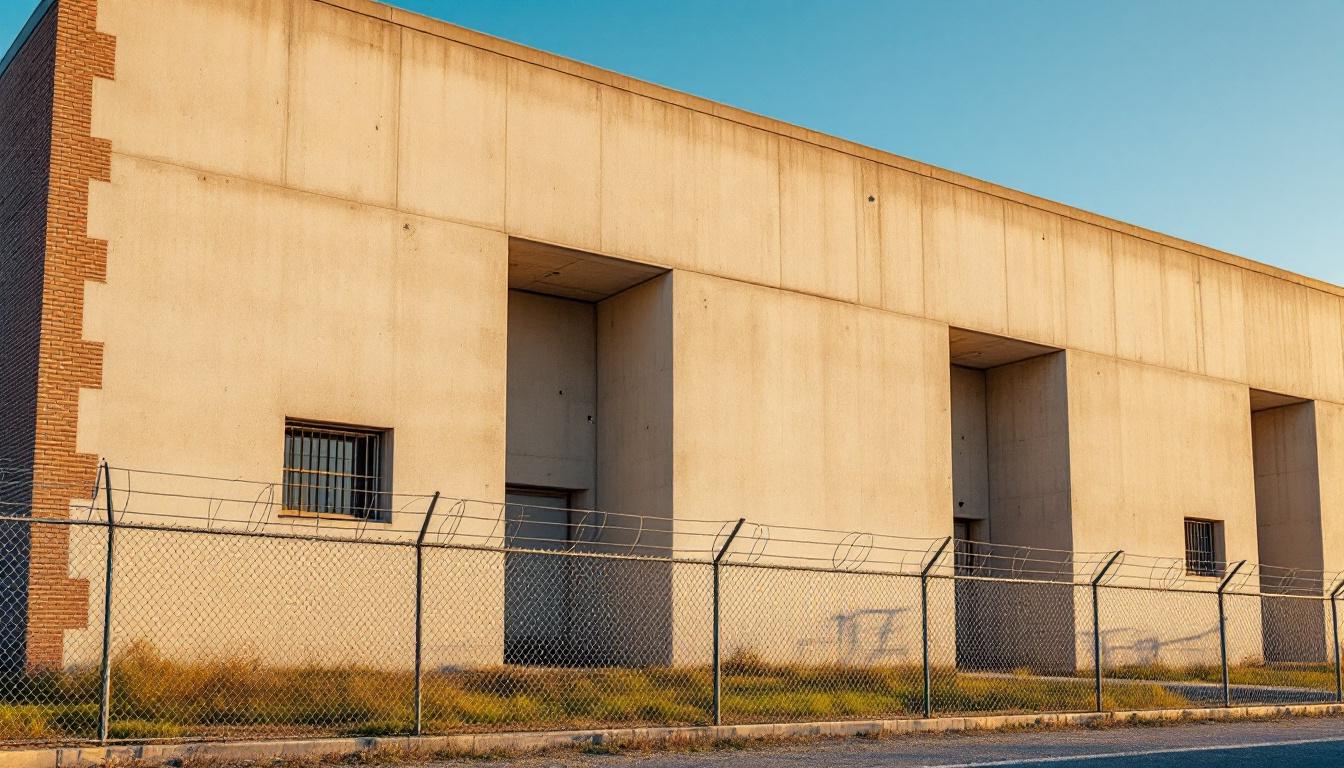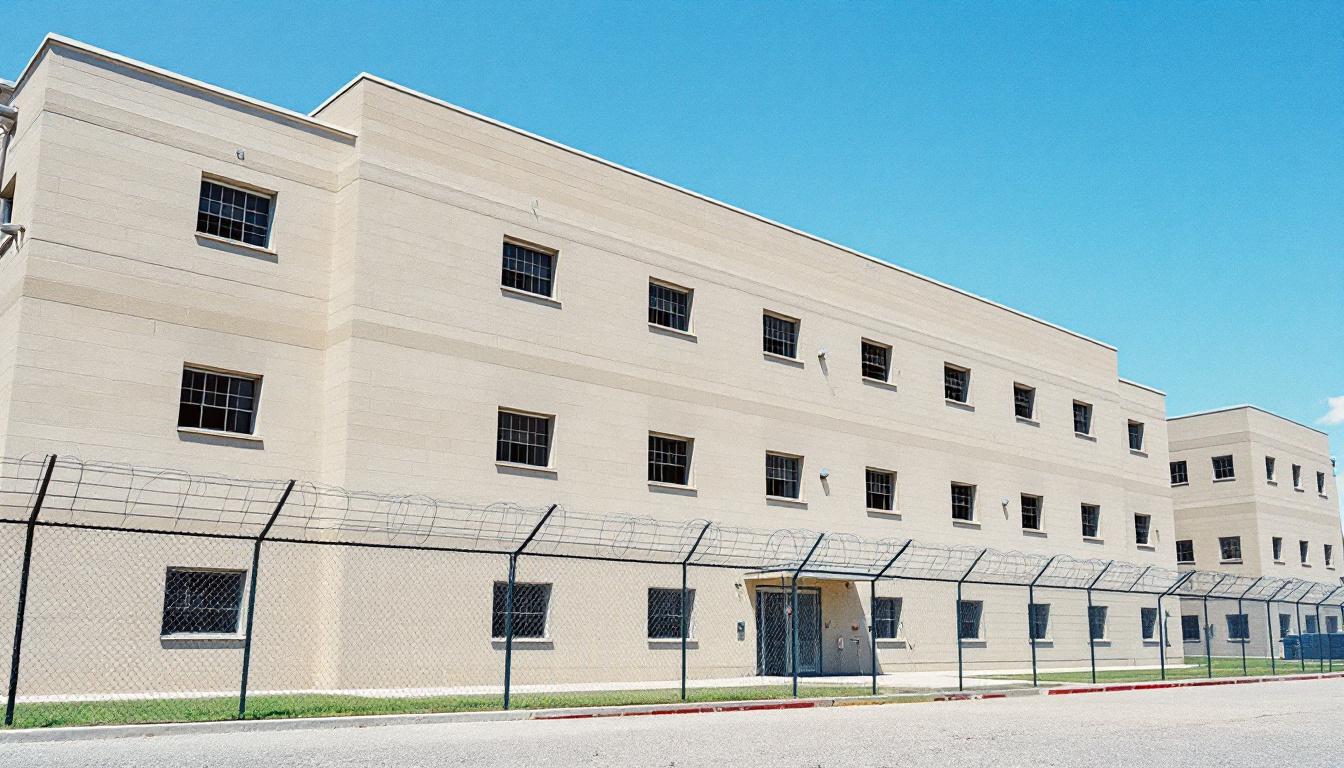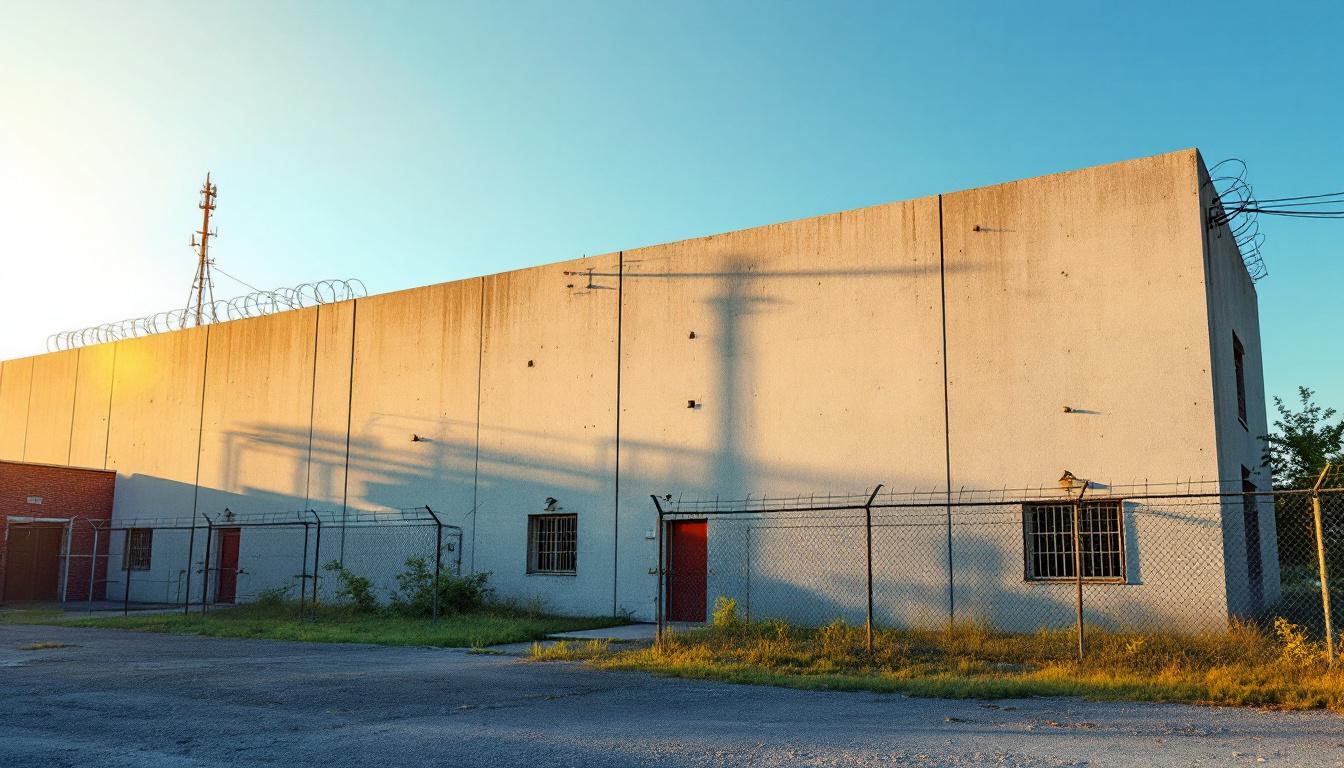
Quick Navigation
How to contact an inmate at Texas Department of Criminal Justice - George Beto Unit
This comprehensive guide will walk you through how to connect with an inmate at Texas Department of Criminal Justice - George Beto Unit. Follow the steps below to find an inmate and send letters and photos:
- Search for the inmate using our search tool below
- Create your account or log in to Penmate
- Write your message (up to 6,000 characters)
- Send instantly - inmates receive printed copies daily
Find an Inmate
Search for an inmate to start communicating today
Tip: You can search by first name, last name, or inmate ID number
To contact a person at Texas Department of Criminal Justice - George Beto Unit start by searching for the person on the official facility website. Perform a search by following these steps:
- Step 1: Enter their first name and last name into the search form and click "Search"
- Step 2: Locate their inmate record
- Step 3: Write down their Inmate ID and any housing information provided
Important! Be sure to enter the person's full name. Nicknames should not be used.
How to Send Messages to Inmates

You can use your phone or computer to send emails, letters, and photos to an inmate. Messages are sent electronically to inmate tablets or kiosks at the facility. If you would like to send a message, start by searching for an inmate at Texas Department of Criminal Justice - George Beto Unit.
Sending Photos and Postcards

A great way to send love and support to a loved one at Texas Department of Criminal Justice - George Beto Unit is to send photos and postcards. It only takes a few minutes to send photos from your phone and it makes a huge difference. You can also mail postcards with words of support and inspiration, or design your own postcard for special moments like birthdays and holidays.
Important! Be sure not to send any explicit photos or they may not be approved by the facility. You can also use a photo printing app like Penmate to make sure your photos are printed at the correct size (4x6 or 3x5) and are mailed according to the rules and regulations of Texas Department of Criminal Justice - George Beto Unit.
Frequently asked questions about Texas Department of Criminal Justice - George Beto Unit
-
How long does it take to deliver a message?
If you're sending an email message your letter is usually delivered within 24-48 hours. For messages sent via mail you should expect delivery within 3-7 days. All messages will need be approved by Texas Department of Criminal Justice - George Beto Unit.
-
How much does it cost to send a message to Texas Department of Criminal Justice - George Beto Unit?
You can send a message free using your phone or mail a message via USPS for the price of a $0.60 stamp and envelope. You can also purchase credits or e-stamps from services starting at $1.99.
-
What services can I use to contact an inmate at Texas Department of Criminal Justice - George Beto Unit?
Penmate
You can use Penmate to send letters and photos to an inmate from your phone. It's an easy way to stay in touch during your loved one's incarceration. Use the inmate locator to find an inmate's location and contact information, then you can send messages within a few minutes.
Securus messaging
Securus may be another option for communicating with an inmate at Texas Department of Criminal Justice - George Beto Unit. You can create a friends and family account and purchase credits to send messages. All messages will be reviewed and must be approved by the facility.
JPay
Some county jails and state prisons may support sending messages with JPay. You must register an account with the system, find your loved one, and purchase stamps to send messages. For some locations you can also attach photos.
Smart Jail Mail
You may also check if Smart Jail Mail is available at Texas Department of Criminal Justice - George Beto Unit. Smart Jail Mail is operated by Smart Communications and has contracted with some state and county jails. After purchasing credits, your messages and photos are sent to the facility, printed out, and then handed out to your loved one.
-
What is the mailing address of Texas Department of Criminal Justice - George Beto Unit?
Mailing address:
Texas Department of Criminal Justice - George Beto Unit
1391 Farm-To-Market Rd 3328
Tennessee Colony, TX 75880
Phone: (903) 928-2217Business hours:
- Monday: 8:00 AM – 5:00 PM
- Tuesday: 8:00 AM – 5:00 PM
- Wednesday: 8:00 AM – 5:00 PM
- Thursday: 8:00 AM – 5:00 PM
- Friday: 8:00 AM – 5:00 PM
- Saturday: 7:00 AM – 5:00 PM
- Sunday: 7:00 AM – 5:00 PM
-
What are the visiting hours at Texas Department of Criminal Justice - George Beto Unit?
Visiting hours at Texas Department of Criminal Justice - George Beto Unit vary by housing unit and security level. Generally, visits are scheduled on weekends and holidays, with some facilities offering weekday visits. Contact the facility directly at (903) 928-2217 or check their website for the current visiting schedule. Visits typically last 30-60 minutes and must be scheduled in advance.
-
What items are prohibited when sending mail to Texas Department of Criminal Justice - George Beto Unit?
Prohibited items typically include: cash, personal checks, stamps, stickers, glitter, glue, tape, staples, paperclips, polaroid photos, musical or blank greeting cards, hardcover books, magazines with staples, and any items containing metal or electronics. Only send letters on plain white paper with blue or black ink. Photos must be printed on regular photo paper (no Polaroids). Always check with Texas Department of Criminal Justice - George Beto Unit for their specific mail policies.
-
How do I send money to an inmate at Texas Department of Criminal Justice - George Beto Unit?
You can send money to an inmate at Texas Department of Criminal Justice - George Beto Unit through several methods: 1) Online using JPay, Access Corrections, or the facility's approved vendor, 2) Money orders mailed directly to the facility with the inmate's name and ID number, 3) Kiosks located in the facility lobby, or 4) Over the phone using a credit or debit card. Fees vary by method, typically ranging from $2.95 to $11.95 per transaction.
-
Can I schedule a video visit with an inmate at Texas Department of Criminal Justice - George Beto Unit?
Many facilities now offer video visitation as an alternative to in-person visits. At Texas Department of Criminal Justice - George Beto Unit, video visits may be available through services like Penmate, Securus Video Connect, GTL, or ICSolutions. Video visits typically cost $10-20 for 20-30 minutes and must be scheduled in advance. You'll need a computer or smartphone with a camera and reliable internet connection. Contact the facility for their specific video visitation policies and approved vendors.
-
What identification do I need to visit an inmate at Texas Department of Criminal Justice - George Beto Unit?
All visitors must present valid government-issued photo identification such as a driver's license, state ID, passport, or military ID. Minors must be accompanied by a parent or legal guardian who can provide the minor's birth certificate. Some facilities require visitors to be on the inmate's approved visitation list, which may require a background check. Contact Texas Department of Criminal Justice - George Beto Unit for specific ID requirements and visitor approval procedures.
-
How can I find out an inmate's release date?
To find an inmate's release date at Texas Department of Criminal Justice - George Beto Unit, you can: 1) Use the online inmate search tool if available, 2) Call the facility's records department, 3) Contact the inmate's case manager or counselor, or 4) Have the inmate provide this information during a call or visit. For privacy reasons, some facilities only release this information to immediate family members.
Facility Overview
Contact Information
Texas Department of Criminal Justice - George Beto Unit1391 Farm-To-Market Rd 3328
Tennessee Colony, TX 75880
Phone: (903) 928-2217
Official Website
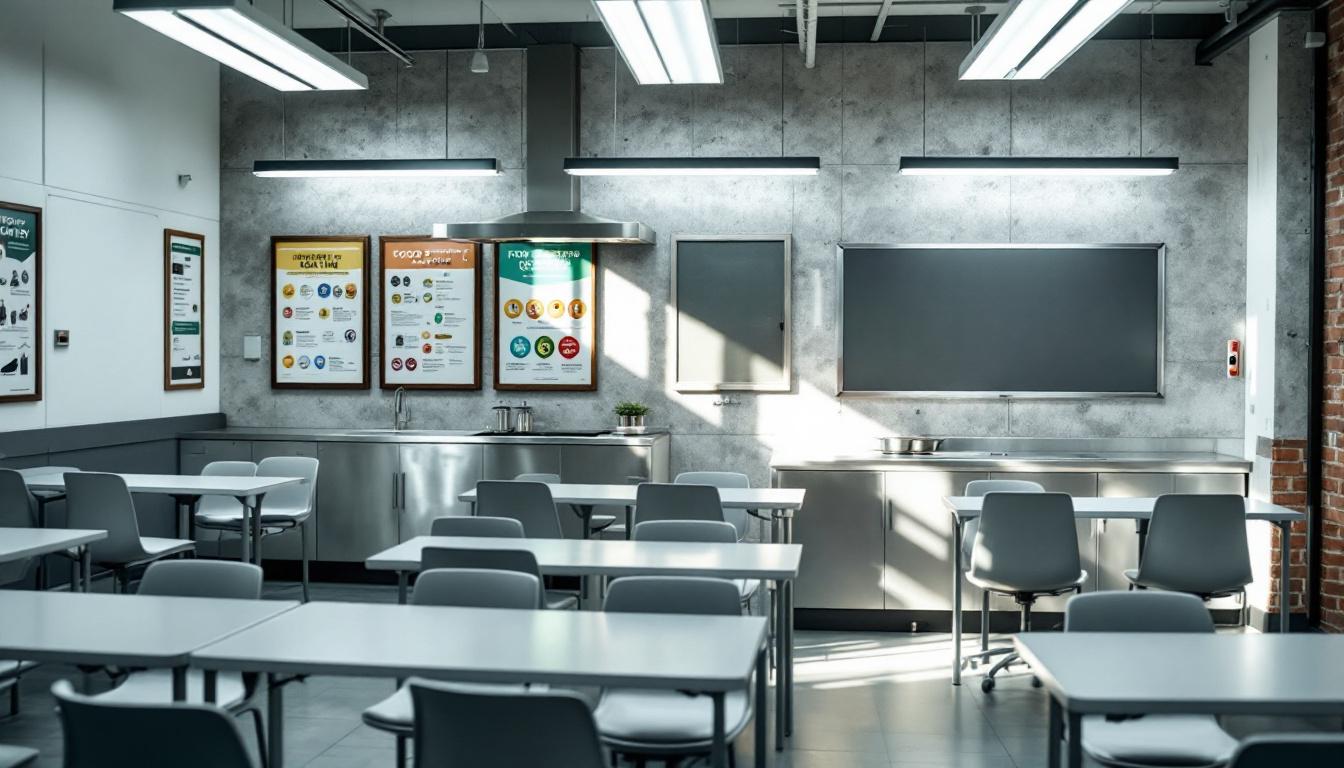
About Texas Department of Criminal Justice - George Beto Unit
Serving the state's commitment to secure custody and structured rehabilitation, the Beto Unit operates as a TX correctional facility within the broader network of institutions designed to manage offender populations while supporting pathways toward successful reintegration. Located in the Dallas metropolitan area, this facility contributes to Texas's comprehensive approach to corrections, balancing public safety priorities with evidence-based programming that addresses the complex needs of those incarcerated services.
The facility's approach to offender management typically emphasizes structured daily routines, educational opportunities, and vocational training programs that may help individuals develop practical skills for eventual community reentry. Within the historical context of Texas corrections, facilities like Beto Unit have evolved to incorporate more comprehensive support systems, often including substance abuse treatment, mental health services, and life skills development. The correctional facility generally maintains security protocols while creating environments where rehabilitation programming can take place effectively.
Drawing from the south region's emphasis on community connections and family support, the Dallas-area location may offer advantages for maintaining important relationships during incarceration periods. Visitation programs, correspondence opportunities, and potentially educational partnerships with local institutions typically form part of the facility's broader mission to support both immediate custody needs and longer-term reintegration goals. The unit's role within Texas's correctional system reflects ongoing efforts to balance accountability with opportunities for personal growth and positive change.
Programs & Services
Personal growth and skill development form the foundation of meaningful change for those incarcerated at Beto Unit. The facility typically emphasizes creating pathways that allow individuals to build practical abilities while addressing personal challenges. Through structured offerings that focus on both immediate needs and long-term preparation, participants often find opportunities to develop new perspectives and capabilities during their time at the facility.
Educational and vocational training opportunities may furnish those incarcerated with marketable skills for eventual reintegration. The facility often includes vocational training programs that focus on trades and technical skills commonly needed in the workforce. These hands-on learning experiences typically allow participants to gain certifications and practical experience that can support their transition back to the community. Work programs within the facility often provide additional opportunities to apply newly acquired skills while contributing to daily operations.
In addition to this skills-based approach, Beto Unit may offer therapeutic and support services designed to address personal growth needs. Grief counseling services typically help those incarcerated process loss and trauma that may have contributed to their circumstances. Faith-based initiatives often provide spiritual guidance and community support for participants seeking this type of assistance. Food service operations frequently serve as both practical work experience and essential facility functions, allowing individuals to develop culinary and food safety skills while maintaining the structured environment necessary for security and safety.
Daily Life & Visitation
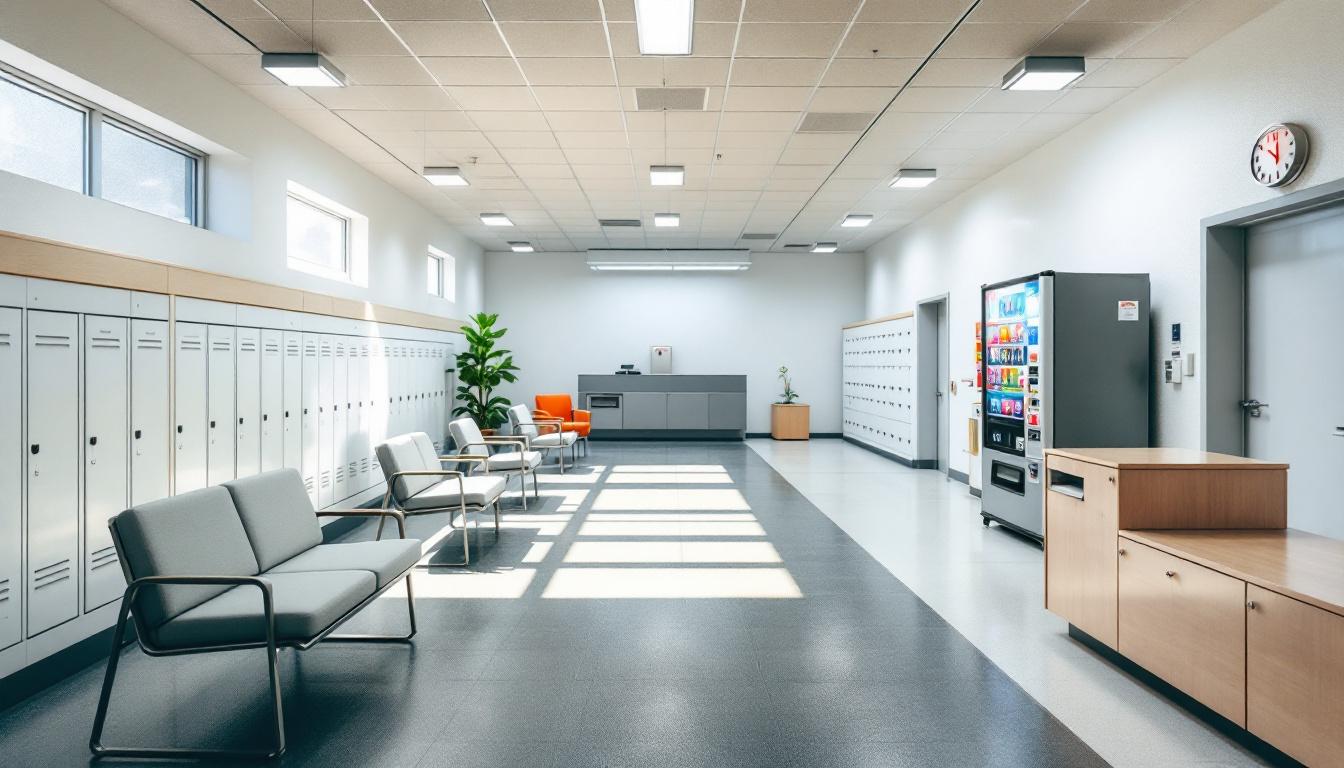
Building connections with family and fellow residents shapes much of the experience for those incarcerated at the facility. Daily routines now center around structured activities that regularly bring people together in common areas. Meal times, work assignments, and recreational periods furnish opportunities for social interaction and community building.
Housing units typically accommodate multiple residents who share living spaces and common areas. Those incarcerated generally have access to basic furnishings and personal storage for approved belongings. In addition to this shared living arrangement, the facility usually provides dining halls where residents gather for meals at scheduled times throughout the day. Recreation areas may offer space for exercise, games, and group activities that help maintain physical and mental well-being.
Work assignments often include kitchen duties, maintenance tasks, and facility operations that keep residents engaged in productive activities. Despite this structured environment, communication with family members remains an important aspect of daily life through scheduled visitation periods and phone access. Programming typically includes educational opportunities, counseling sessions, and other activities designed to support personal development. The commissary system usually allows residents to purchase approved items that can improve comfort and maintain connections to life outside the facility walls.
Ready to Connect?
Start communicating with your loved one today
Search for an Inmate
